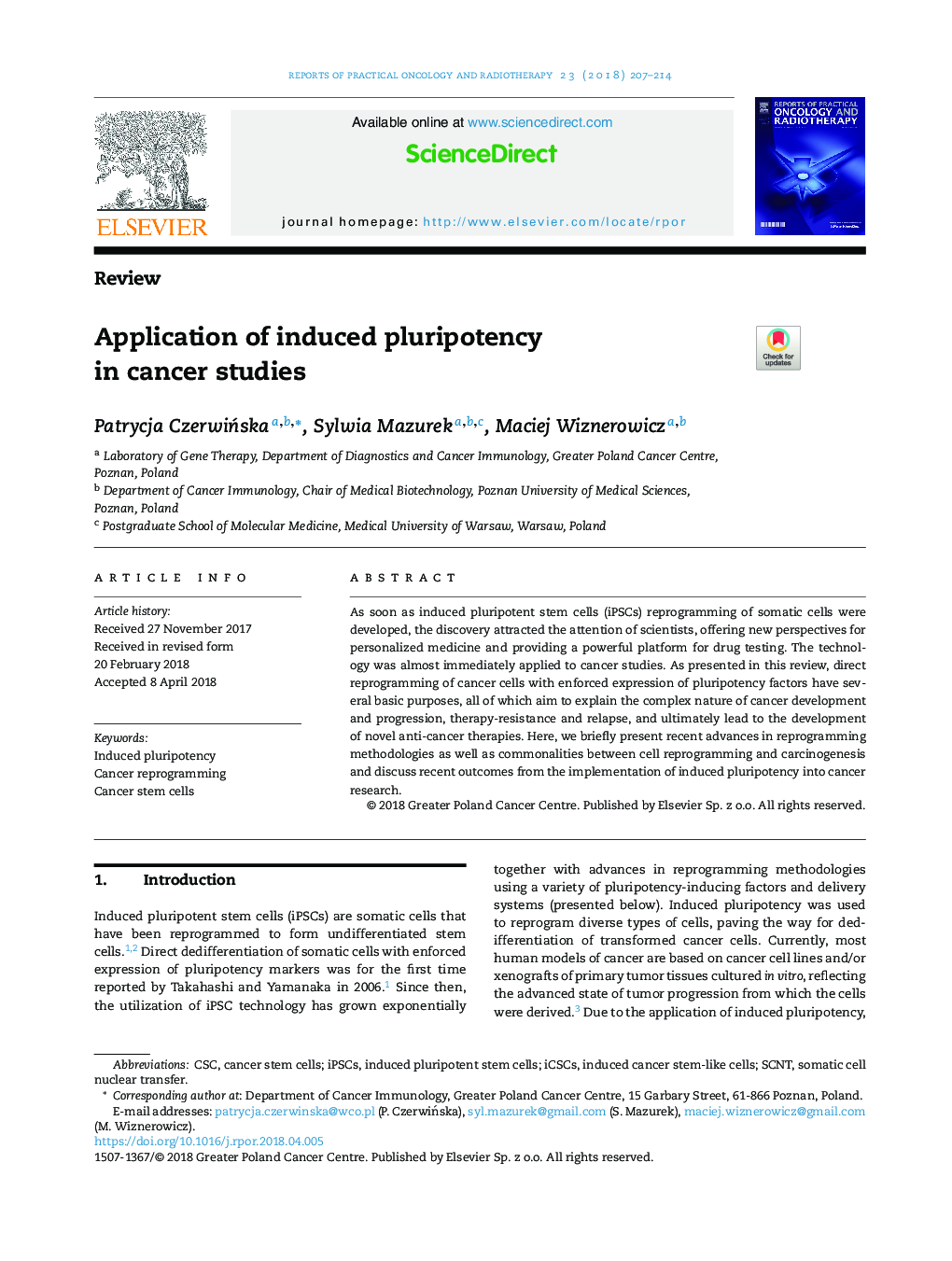| Article ID | Journal | Published Year | Pages | File Type |
|---|---|---|---|---|
| 8201043 | Reports of Practical Oncology & Radiotherapy | 2018 | 8 Pages |
Abstract
As soon as induced pluripotent stem cells (iPSCs) reprogramming of somatic cells were developed, the discovery attracted the attention of scientists, offering new perspectives for personalized medicine and providing a powerful platform for drug testing. The technology was almost immediately applied to cancer studies. As presented in this review, direct reprogramming of cancer cells with enforced expression of pluripotency factors have several basic purposes, all of which aim to explain the complex nature of cancer development and progression, therapy-resistance and relapse, and ultimately lead to the development of novel anti-cancer therapies. Here, we briefly present recent advances in reprogramming methodologies as well as commonalities between cell reprogramming and carcinogenesis and discuss recent outcomes from the implementation of induced pluripotency into cancer research.
Keywords
Related Topics
Physical Sciences and Engineering
Physics and Astronomy
Nuclear and High Energy Physics
Authors
Patrycja CzerwiÅska, Sylwia Mazurek, Maciej Wiznerowicz,
